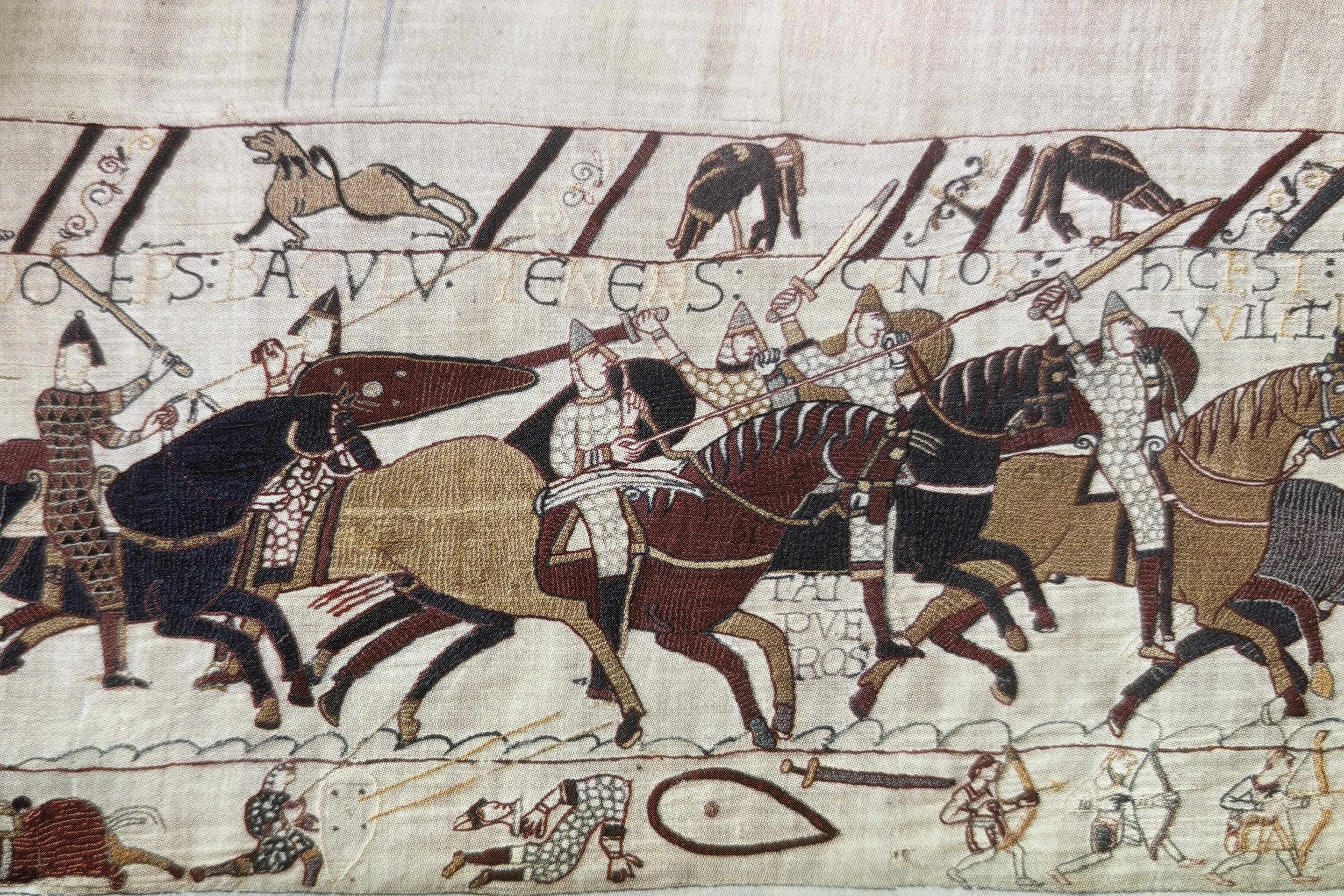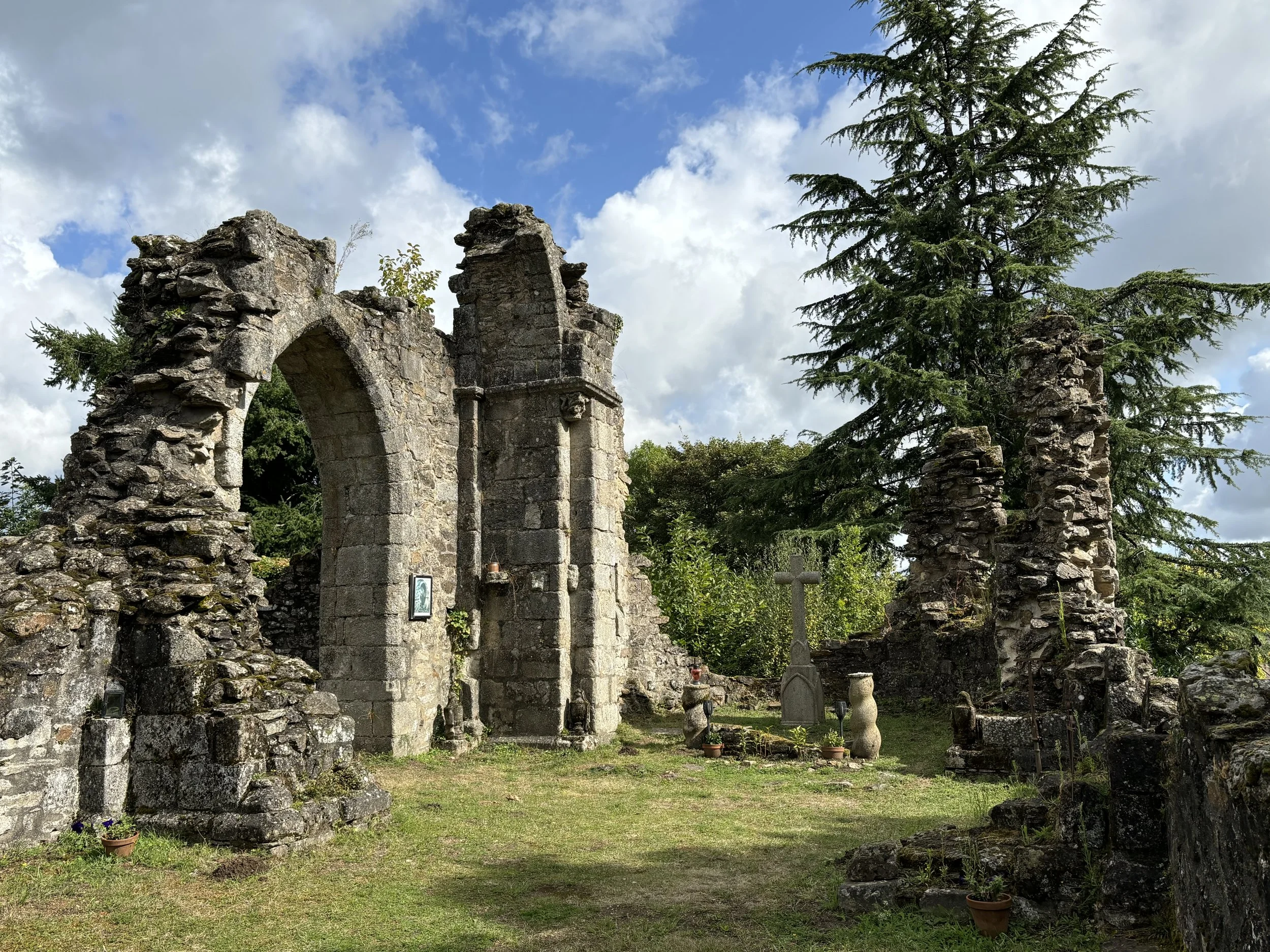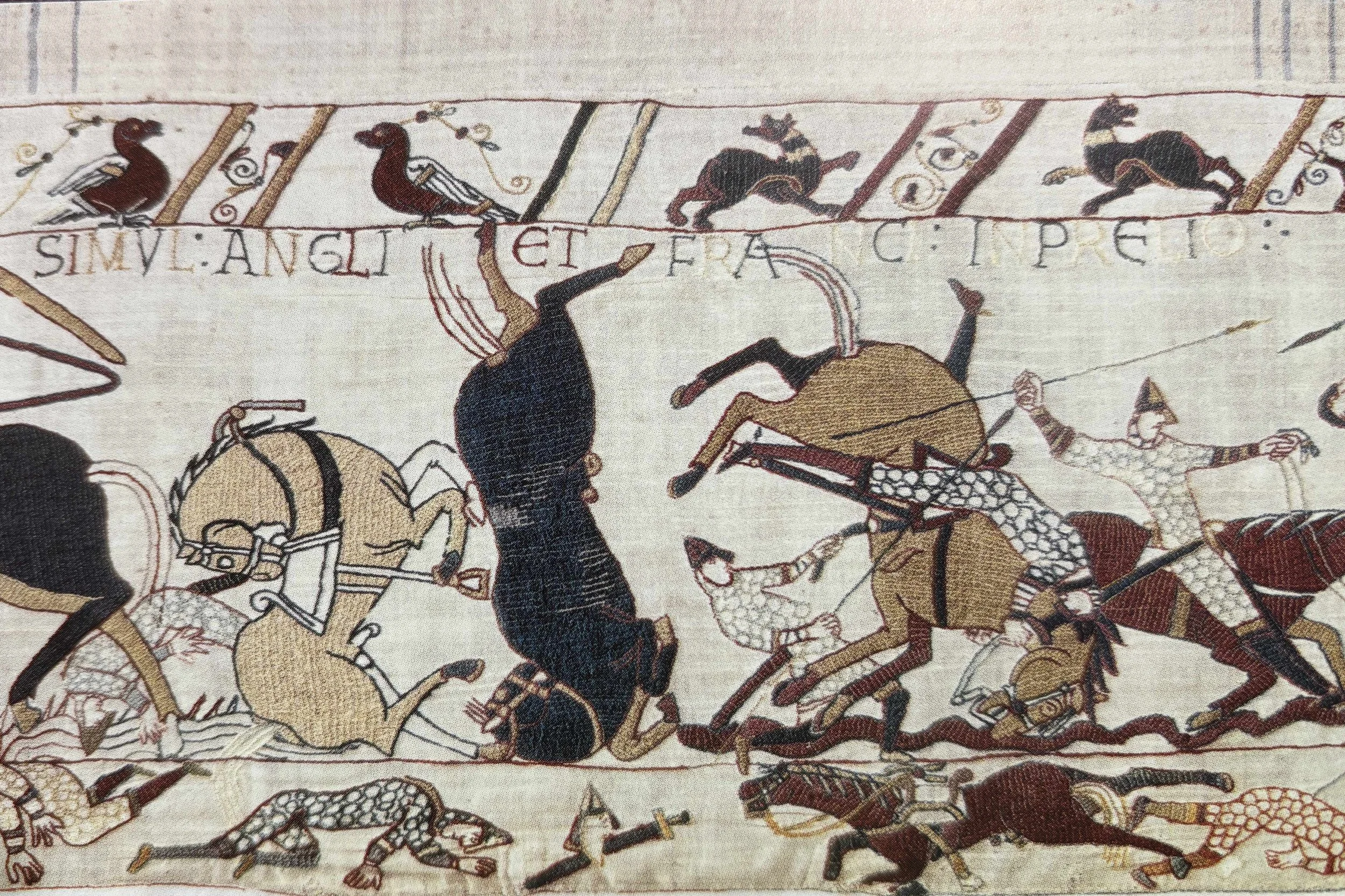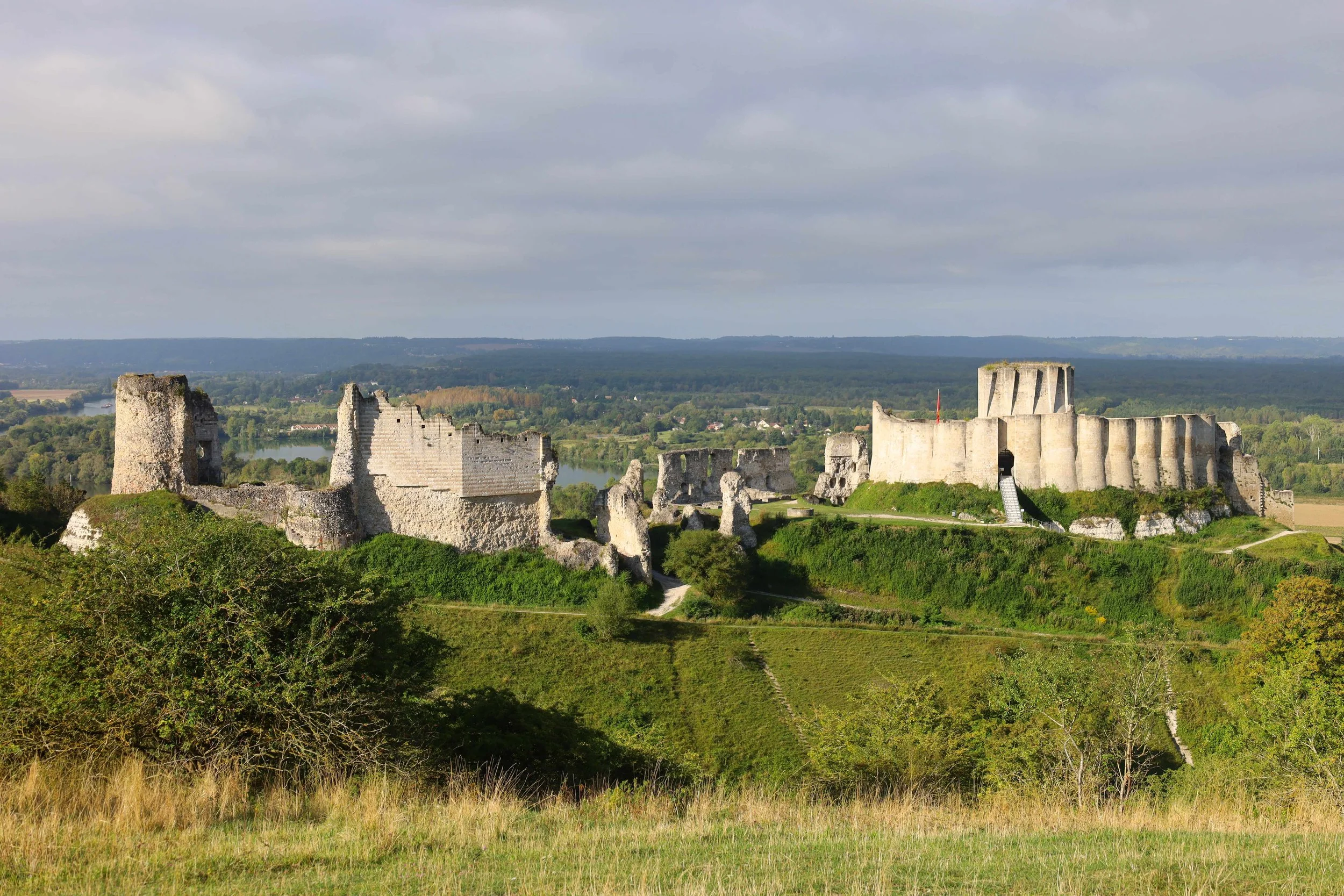King & Conqueror Sparks an Old Argument
Those of us in the history fan community had been waiting with keen anticipation for the release of BBC’s King & Conqueror. A big-budget series on the Battle of Hastings? Of course we were curious.
But now that it’s aired in the UK, the chatter online hasn’t been what many had hoped. Instead of applause, there’s been a storm of criticism over its historical accuracy.
And here’s where I need to confess something: I am one of those people who yells at the TV when history gets twisted. You should have heard me during Vikings! And don’t get me started on Richard the Lionheart’s death in Robin Hood…
This, of course, is not a new debate. From Braveheart to the present day, every time Hollywood or television takes on the past, sparks fly over how much truth has been sacrificed for the sake of drama.
Why Filmmakers Bend the Truth
So why do they do it? Why can’t filmmakers and TV producers just stick to the story as it really happened?
The short answer is: drama.
Real history is wonderfully complex, full of twists, contradictions, and half-told stories. But television works to a different rhythm. It needs pacing, tension, clear heroes and villains, and a neat story arc that wraps up in a set number of episodes.
That means timelines get shortened. Characters get blended or reimagined. Battles that stretched over muddy hours are compressed into a few minutes of screen time with a soaring soundtrack. Even relationships can be recast by shifting who met who, how and when, all because it makes for a stronger scene.
And look, I do understand that not everything from the past is as well documented as we’d like. Sometimes there are gaps that storytellers need to fill in. However, what really frustrates me is when the real story, with all its depth in location, relationships, and conflict is already fascinating enough, yet gets twisted beyond recognition.
I also understand the need for drama. But surely that can be accomplished within the realm of reality. Take Robin Hood, for example. Richard the Lionheart’s death was dramatic enough: a brilliant warrior, a castle siege, a well-timed crossbow bolt, and a slow decline. If a director wanted to add more spectacle to that scene, ok fair enough, turn it into a dramatic battle to heighten the tension.
But for heavens sake, at least have him struck in the right place by that fatal bolt, and don’t move key historical figures onto the stage for no reason at all, when they simply weren’t there. William Marshal, for instance, was not present at the siege of Châlus.
Gosh, even the women who stitched the Bayeux Tapestry understood the power of drama. Look at the chaos of this scene — horses tumbling, bodies strewn, the confusion of battle captured in thread. No need to alter the story, no special effects required, just letting the tale tell itself.
In short, accuracy often takes a back seat to entertainment value. And while it may keep viewers hooked, it also means the history we love risks being flattened into something decidedly less authentic.
Why It Matters
Some might say, “But it’s only entertainment, does it really matter if they change a few details?” And to a point, that’s fair. Not everyone watching a TV drama is expecting a history lesson.
And honestly, I believe anything that sparks curiosity and encourages people to want to learn more about history can only be a good thing. That goes for not only films and TV shows, but also for books — especially historical novels. The same argument often surfaces in the book world, with readers divided over whether fiction should stick closely to fact or take creative licence. If a story inspires someone, particularly younger generations, to look deeper into the real events and people, then surely that is valuable.
But here’s the thing: for many people, what they see on screen is their first, and sometimes only introduction to history. Once you’ve watched a film or series, that version of events can take hold in your imagination. It becomes hard to separate what was created for drama from what actually happened.
And that my friends is why it matters. These stories shape how we remember the past. They influence the way people picture a battle, a queen, or even an entire era. And when creative liberties go too far, we risk losing sight of just how rich, complex, and human the real stories truly are.
Because history doesn’t need rescuing. It doesn’t need rewriting to be interesting. The drama, the intrigue, the heartbreak — it’s already there in the sources, waiting to be told.
King & Conqueror Joins the Debate
The latest BBC series King & Conqueror hasn’t even reached Australian screens yet, so I haven’t been able to watch it myself. But already, the feedback from viewers in the UK is flooding the internet and social pages, and let’s just say it isn’t exactly glowing when it comes to historical accuracy.
From what I’ve seen in online history groups, the criticisms echo that same old argument: why do filmmakers feel the need to twist what is already one of the most compelling stories in English history?
The Battle of Hastings, with all its ambition, betrayal, and brutal final clash, hardly needs embellishment. And yet, just as with Braveheart, Vikings, or Robin Hood, liberties have been taken that leave many of us scratching our heads (or, in my case, screaming at the TV).
Your Turn
I know I’m not alone in this, as the history community has been debating screen accuracy for years, and it’s not likely to stop anytime soon. King & Conqueror is simply the latest spark in an ongoing fire.
So I’d love to hear your thoughts. Which films or series made you throw up your hands in frustration? And on the flip side, which ones do you think got it right — or at least close enough to keep you happy?
For me, these debates are more than just rants at the TV. They remind me why I love exploring history at its source — in the castles, cathedrals, and landscapes where it really happened. When you’re standing there, looking out or exploring the breath-taking ruins of a fortress like Chateau Gaillard (left), no director needs to add drama. The story speaks for itself.
In closing, I think I’ll reserve my final thoughts until I can watch the series for myself later this year. But one thing feels certain already: King & Conqueror hasn’t just revived the story of 1066, it has reignited an interesting ongoing discussion about where history ends and drama begins.
And if you’d like to keep exploring these reflections, you’re welcome to follow along with my blogs or even join one of my Plantagenet tours — where we step into the real history, no Hollywood filter required.
Comment below to keep the conversation going.
Bayeux Tapestry, Chalus-Chabrol & Chateau Gaillard Images © Plantagenet Discoveries, Battle Abbey Image © English Heritage Trust





